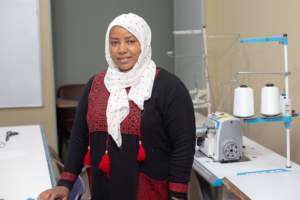How National Vocational Training in Egypt is Empowering Youth


Reforming Education to Meet Labor Market Demands
Egypt’s strategic investment in TVET reflects a commitment to building a more resilient and inclusive economy. The Technical Education Reform Strategy is reshaping how young people prepare for the job market, a group that currently sits at 20% unemployment compared to Egypt’s overall 7%, one of the highest in the MENA region. These conditions highlight the urgency of the nation’s tactical use of a competency and skills based curriculum, ensuring new workers can survive the competitive and rapidly evolving labor market each year.
International development partners like the European Training Foundation, the German Development Corporation and the USAID-funded “Workforce Egypt” project have supported this nationwide reform. Together, these efforts have led to the creation of more than 2,900 institutions that blend academic learning with hands-on experience in fields such as agribusiness, hospitality and clean energy.
Partnerships that Power Progress
A central pillar driving reforms in the country’s education policy is the Egypt Impact Lab (EIL), a government-embedded initiative led by J-PAL Middle East and North Africa. It works alongside the Ministry of Education and Technical Education to evaluate and design policies. The EIL provides evidence and projections to ensure that vocational education policies continue to produce workers who support Egypt’s evolving economy.
In addition, the EIL acts as an interconnected space that brings together policymakers, donors and international experts to align priorities and shape reforms. These partnerships are instrumental in converting ambitious ideas into effective, scalable programs that can reach the students who need them most.
Reaching the Marginalized: Refugees and Informal Workers
While Egypt’s education reforms benefit millions of youth, they are particularly crucial for vulnerable communities. Egypt hosts more than 900,000 registered refugees, along with 1.5 million Sudanese migrants fleeing the current crisis. Refugees face high barriers to employment and education, which vocational training in Egypt aims to address. Programs like Caritas Egypt’s “For a Better Future” offer training and entrepreneurship skills to Egyptian and Syrian youth. Participants receive certifications from the Ministry of Social Affairs, gaining a foothold in Egypt’s competitive labor market. Training topics range from plumbing and tailoring to sustainable practices like plastic waste management and water conservation.
The World Food Programme (WFP) also plays a vital role, especially through its skills development program for refugees and marginalized groups. The WFP focuses on building skills in high-demand sectors, while also providing micro-loans to women entrepreneurs and promoting inclusive training opportunities. These policies directly impact participants’ economic well-being, with household incomes of women in the WFP’s She Can program increasing by up to 50%.
A Path Forward
Vocational training in Egypt has developed into a tool of long-term socio-economic growth, laying long term groundwork to equip young people and marginalized groups with the skills to not only sustain the country’s developing economy, but also transform their own lives.
The initiatives and partnerships created by Egypt’s TVET system build futures for millions, holding the potential to reduce the inequality and deprivation that the many Egyptians below the poverty line face every day. Furthermore, as Amr Bosila of the Ministry of Education and Technical Education noted, “By aligning education with labour market needs…Egypt charts a course towards a future of inclusive growth and opportunity.”
– Tom Finighan
Tom is based in London, UK and focuses on Business and New Markets for The Borgen Project.
Photo: Flickr
